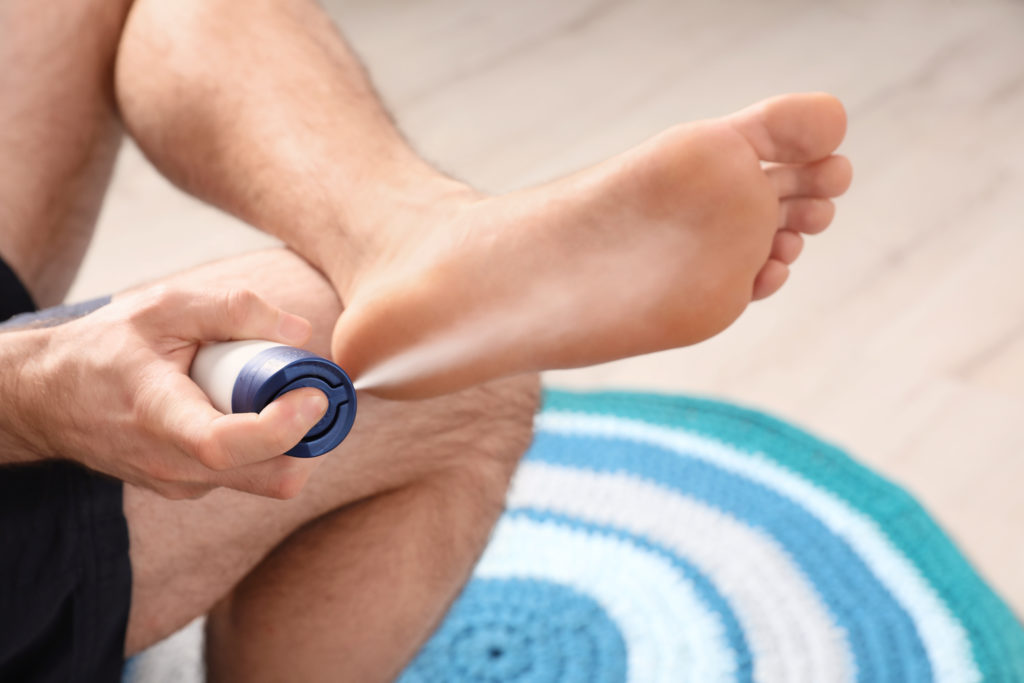Top Dermatology Treatments for Hyperhydrosis of Hands and Feet: What You Need to Know
Comprehending the Root Causes of Excessive Sweating and Its Influence On Day-to-day Live
While it is generally recognized as a physical action to control body temperature, the triggers for extreme sweating can vary commonly among individuals, incorporating not just physical aspects however likewise emotional and mental aspects. By delving right into the root causes of hyperhidrosis and discovering its diverse results, a much deeper understanding of this pervasive issue can be gained, dropping light on the intricacies that individuals grappling with excessive sweating browse on a day-to-day basis.
Physiology of Sweat Glands
The regulation of sweat manufacturing, an important physiological process, is primarily regulated by the task of sweat glands distributed throughout the human body. Sweat glands are categorized into two major types: eccrine and apocrine glands.
When the body temperature level climbs, either because of exercise, heats, or emotional stress and anxiety, the nerves sets off the gland to generate sweat. This sweat is composed mostly of water and electrolytes like salt and chloride. The procedure of sweat manufacturing is important for preserving the body's inner temperature level within a narrow, ideal variety, highlighting the essential duty sweat glands play in human physiology.
Triggers for Excessive Sweating
In recognizing the source of extreme sweating, it is vital to recognize the triggers that can bring about this physical response. Excessive sweating, also referred to as hyperhidrosis, can be motivated by numerous elements, both physiological and ecological. One typical trigger is psychological stress and anxiety or anxiety, which can stimulate the body's sweat glands to produce more sweat than is needed for cooling down. Physical physical effort, high temperatures, and spicy foods are likewise recognized to activate too much sweating in people prone to this problem. Specific clinical problems like hyperthyroidism, menopause, or diabetes can contribute to excessive sweating as well.
Additionally, medications such as some antidepressants, opioids, and specific supplements can likewise function as triggers for hyperhidrosis. Comprehending these triggers is crucial in taking care of extreme sweating effectively - Treatment for hyperhydrosis of hands and feet. By determining and attending to the specific triggers that motivate extreme sweating in a specific, doctor can create customized treatment strategies to reduce this problem and improve the person's lifestyle
Medical Issue Associated
Related to too much sweating are numerous medical conditions that can exacerbate this physical action. One typical condition is hyperhidrosis, a problem characterized by unusually raised sweating that surpasses the body's thermoregulatory requirements. This can manifest in focal locations like the hands, soles, underarms, or face, influencing a person's lifestyle due to social humiliation and pain.
Moreover, endocrine disorders such as hyperthyroidism, diabetes mellitus, and menopausal warm flashes can also lead to extreme sweating. Hyperthyroidism causes an overflow of thyroid hormones, speeding up metabolic process and causing sweating. Diabetic issues can induce sweating episodes, specifically during hypoglycemic episodes when blood sugar levels drop as well low. Menopausal hot flashes, attributed to hormonal fluctuations throughout menopause, can create intense and unexpected sweating, often accompanied by flushing and heart palpitations.
In addition, infections like hiv, tuberculosis, and endocarditis have been related to night sweats, a typical signs and symptom understood to disrupt sleep and impact overall wellness. These medical conditions highlight the varied array of underlying factors that can add to extreme sweating, requiring extensive assessment and management by health care professionals.
Psychological and emotional Elements

Influence On Social Interactions
Too much sweating can have extensive effects on an individual's capacity to involve pleasantly in social communications. The noticeable signs of sweat discolorations or damp spots on clothes can bring about embarrassment and self-consciousness, causing people to take out from social situations. This withdrawal can impact partnerships, restriction social tasks, and impede expert and personal growth.

Additionally, the stress and anxiety and self-worth concerns originating from too much sweating can affect communication and interpersonal skills. People may have a hard time to concentrate on discussions, take part in team tasks, or reveal themselves with confidence. This can bring about sensations of seclusion and solitude, as social links become testing to maintain.
Final Thought

While it is frequently comprehended as a physical feedback to regulate body temperature level, the triggers for excessive sweating can vary widely amongst people, including not just physical variables but additionally psychological and psychological aspects. By delving right into the root causes of hyperhidrosis and exploring its multifaceted effects, a much deeper understanding of this prevalent issue can be obtained, losing light on the complexities that individuals grappling with extreme sweating navigate on a day-to-day basis.
Physical effort, high temperatures, and spicy foods are additionally understood to set off too much sweating in individuals susceptible to this problem. By identifying and dealing with the certain triggers that trigger too much sweating in a specific, medical care suppliers can develop individualized therapy strategies to ease this problem and improve the individual's top quality of life.
Extreme sweating can have extensive impacts on a person's capability to involve comfortably in social interactions.